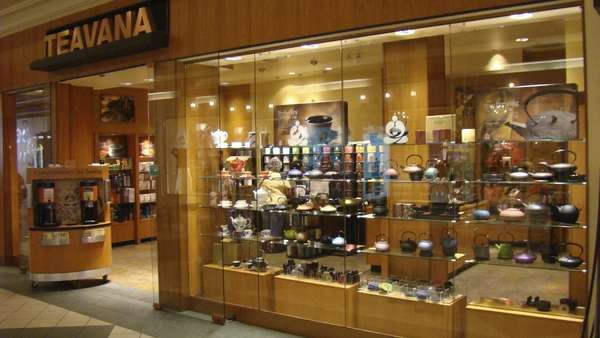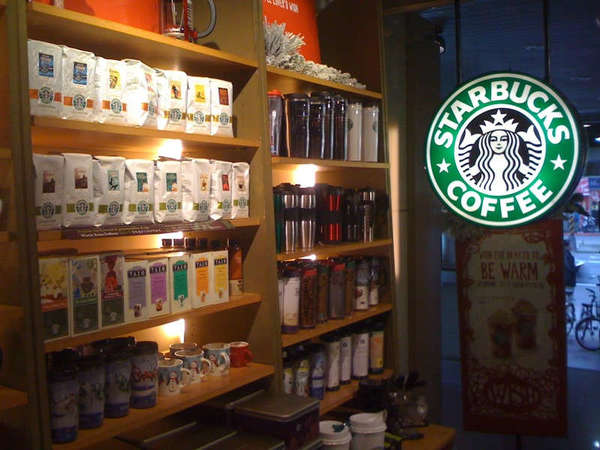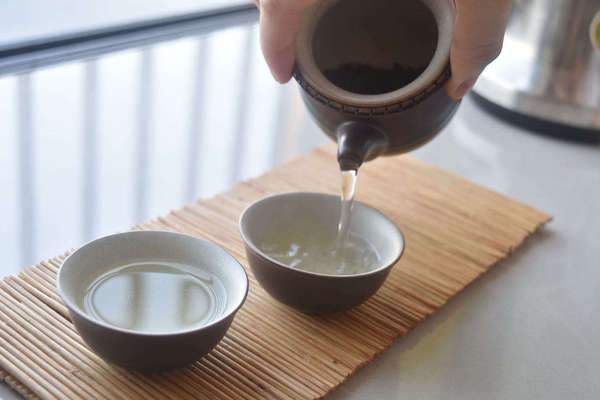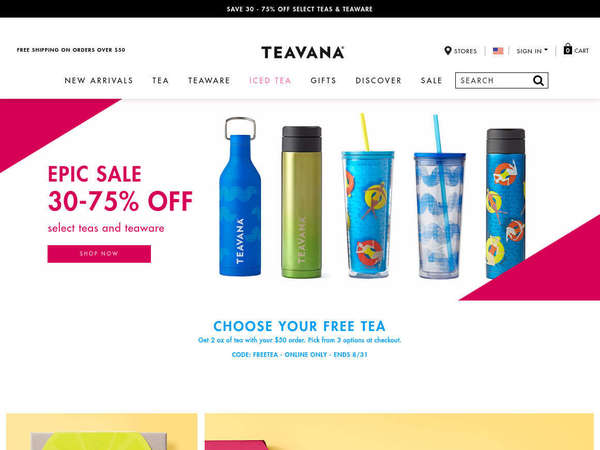Will Teavana's Online Store Stay Open?
Last Updated: Dec. 5, 2017Update: Teavana has officially closed their online store. Products are available only for a short time in local stores.
 Photo of Teavana Easton Town Center, © Bob Hall, CC BY-SA 2.0.
Photo of Teavana Easton Town Center, © Bob Hall, CC BY-SA 2.0.Teavana is not alone among tea stores struggling to survive in malls; little over a month ago, Capital teas closed many, but not all of its stores. Capital Teas had been ambitiously expanding into many of the same high-end shopping malls where Teavana had previously thrived, in some cases competing directly against Teavana by opening up in the same shopping centers. These closures may be a sign of the decline of the malls themselves; anchor stores like Sears and J.C. Penney have seen numerous closures as well, and the declining mall traffic was a factor outside Starbucks' control.
No official public statement from Starbucks or Teavana
Starbucks has remained conspicuously silent on the subject of whether or not Teavana will continue to maintain their online store. The Teavana website does not even mention the store closures, not even on their store locator or on the listings for any of the specific stores. The Starbucks and Teavana social media also make no mention of any of the closings.Evidence pointing to a possible online store closure
Adam Hartung, a Forbes columnist, observed that this is the second time Starbucks acquired a chain only to completely shut it down, and commented that this may be a troubling sign to investors, signaling that the company had little interest in maintaining the brand. If this is indeed the case, the company may close the online store as well.Starbucks also closed their online store as of October 1, 2017, and did so without public announcement, the only sign being an on-site sale prior to closure.
Teavana's online store also has been advertising an "Epic Sale", with 30-70% off "select teas", a markdown comparable to the markdown in stores that are clearing out their stock to close imminently. Although sales on Teavana's online store are common, it has usually focused on teas planning to be discontinued soon. The current sale includes mainstays such as their jasmine dragon pearls, Sencha Jade reserve, and even their English Breakfast sachets. But not all teas are on sale, so the company is not completely clearing out their stock yet.
Possible paths forward
Starbucks has several options to proceed, following the closure of Teavana's physical stores. The company could leave the online store open and benefit from the separate brand name, or it could abandon the Teavana brand, possibly rebranding its products under its own name. In either scenario, the company could sell teas in its own stores.Leaving the online store open
In this scenario, Starbucks continues to profit from Teavana's brand presence and customer loyalty. The company might even see an increase in online sales, as customers who used to purchase tea locally turn to the online store to buy their old favorites. The infrastructure required to maintain an online store is minimal relative to a massive corporation like Starbucks. The company has sold tea online for a long time, selling its own older brand, Tazo Tea, before the Teavana acquisition, so maintaining this would not be outside the company's typical practice. Following the closure of the online Starbucks store, this path seems increasingly unlikely.Abandoning the Teavana brand
Starbucks may decide to abandon the Teavana brand, instead rebranding the teas under its own name. This would have the advantage of synergizing with Starbucks existing brand visibility, which is and always has been much greater than Teavana's. However, given the company's treatment of Tazo, which it has retained as a separate brand even after switching their own teas to Teavana, this outcome seems unlikely.Selling Teavana teas in Starbucks coffee shops
 Starbucks has sold packaged tea in its stores for a long time; this 2009 photo shows Tazo tea for sale. Photo © Alan Sung, CC BY 2.0.
Starbucks has sold packaged tea in its stores for a long time; this 2009 photo shows Tazo tea for sale. Photo © Alan Sung, CC BY 2.0.Selling packaged teas to-go would be easy, as the company already does this and has for some time. The company may decide to start selling more teaware and loose-leaf tea in Starbucks stores, either under the Teavana brand or as its own brand. It is unlikely that the store would adopt the same type of attentive service (and pushy sales) that characterized the old Teavana stores, but selling prepackaged tea, or possibly offering a self-service station the way Frontier Co-op or Wegmans do, might offer a way to integrate loose-leaf sales into their existing store model without overly burdening employees or requiring larger changes.
What do the Teavana store closures mean to the tea world?
Even if the online store remains open and the brand stays in existence, the closure of Teavana's physical locations will represent a major change to the landscape of tea in the United States. In many metropolitian areas, Teavana was one of only a few specialty tea shops, and in some regions, Teavana was the only shop within miles. The closures of these stores thus do represent a loss to tea culture in the U.S. Pouring Tea, Gong Fu Cha, © Cosmin Dordea, CC BY-SA 2.0.
Pouring Tea, Gong Fu Cha, © Cosmin Dordea, CC BY-SA 2.0.The closure of these shops will thus open up a vacant niche, providing an opportunity for other companies to move in, including both smaller companies and other chains of tea stores. These companies will probably need to use a different sort of business model, however: one that does not depend on luxury shopping malls.
What if Starbucks starts selling loose-leaf tea?
If Starbucks manages to successfully sell loose-leaf teas in their stores, the effect on the tea landscape could be huge. As of 2016, Starbucks owned 7,880 locations in the U.S. alone, over 24,000 globally. These figures dwarf the number of Teavana stores closed. This change could provide a huge increase in the availability of quality loose-leaf tea, but it would also provide competition to brick-and-mortar tea shops virtually everywhere, as well as supermarkets, herb stores, and other stores that sell loose-leaf tea.Only time will tell what choices Starbucks will make, and how their decisions will play out. If things go anything like they have with the Teavana acquisition, we'll be in for more major surprises.


